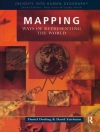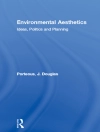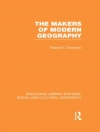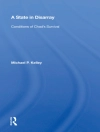This book presents the theories and methods for geology intelligent interpretation based on deep learning and remote sensing technologies. The main research subjects of this book include lithology and mineral abundance.
This book focuses on the following five aspects: 1. Construction of geology remote sensing datasets from multi-level (pixel-level, scene-level, semantic segmentation-level, prior knowledge-assisted, transfer learning dataset), which are the basis of geology interpretation based on deep learning. 2. Research on lithology scene classification based on deep learning, prior knowledge, and remote sensing. 3. Research on lithology semantic segmentation based on deep learning and remote sensing. 4. Research on lithology classification based on transfer learning and remote sensing. 5. Research on inversion of mineral abundance based on the sparse unmixing theory and hyperspectral remote sensing.
The book is intended for undergraduate and graduate students who are interested in geology, remote sensing, and artificial intelligence. It is also used as a reference book for scientific and technological personnel of geological exploration.
Daftar Isi
Chapter 1. Geological remote sensing: An overview.- Chapter 2. Remote sensing interpretation signs of geology.- Chapter 3. Geological remote sensing dataset construction for multi-level tasks.- Chapter 4. Lithology pixel classification using deep convolutional network and remote sensing.- Chapter 5 Lithology scene classification using deep learning and remote sensing.- Chapter 6. Lithology semantic segmentation methods using deep learning and remote sensing.- Chapter 7. Lithology intelligent classification using prior knowledge-based and remote sensing.- Chapter 8. Lithology intelligent classification using transfer learning and remote sensing.- Chapter 9. Remote sensing intelligent identification of fault tectonics.- Chapter 10. Mineral abundance inversion based on sparse unmixing theory and hyperspectral remote sensing.- Chapter 11. Concluding remarks.
Tentang Penulis
Dr. Weitao Chen (Member, IEEE) is a full professor at the School of Computer Science, China Univ. of Geosciences (CUG). He received M.E. in 2006 and Doctor from China Univ. of Geosciences in 2012. He has published more than 50 peer-reviewed technical papers in international journals. His main research interests include machine learning and remote sensing of geo-environment. Prof. Chen is a member of IEEE and served as editor on board and reviewer of several international journals. He was awarded the Land and Resources Science and Technology Progress Award (second prize in 2019) and the Science and Technology Award (second prize) of China command and control society (second prize in 2020). He was awarded ‘cradle plan’ talent project of the China University of Geosciences and the ‘Chenguang plan’ talent project of Youth Science and Technology in Wuhan, Hubei Province.
Dr. Xianju Li is an associate professor at the School of Computer Science, the China University of Geosciences (CUG). He received B.E. in 2009, M.E. in 2012, and Ph.D. in 2016 from the China University of Geosciences, Wuhan. He has more than ten years of experience in geological remote sensing with machine learning and deep learning techniques. He has acquired two 2nd Prizes at the provincial level and published more than 30 peer-reviewed papers.
Dr. Xuwen Qin is a researcher in the China Geological Survey who has been awarded as ‘Li Siguang Scholar.’ He has been researching on the theory, technical equipment, and applications of remote sensing and physical detection in geological survey and has made breakthroughs in many key technologies. He also acquired many high-level achievements in the realm of terrestrial and deep-ocean geological hazards. Related works were collected in the China Top 10 Science and Technology Development, selected by the members of the Chinese Academy of Sciences and the Chinese Academy of Engineering. In addition, he has acquired four 1st Prizes and one 2nd Prize at the provincial level, published 16 monographs and 43 SCI academic papers, and has been awarded 12 international/national invention patents.
Dr. Lizhe Wang is a full professor at the School of Computer Science, China Univ. of Geosciences (CUG). He received the B.E. and M.E. degrees from Tsinghua University, Beijing, China, and the Doctor of Eng. degree from University Karlsruhe (Magna Cum Laude), Germany. He is a Chu Tian chair professor at the School of Computer Science, China University of Geosciences, Wuhan, China. His research interests include HPC, e-Science, and remote sensing image processing. Prof. Wang is a fellow of IET, IEEE, SPIE, and British Computer Society. He was awarded the Land and Resources Science and Technology Progress Award (second prize in 2019), and the Science and Technology Award (second prize) of China command and control society (second prize in 2020). He was also awarded National Science Fund for Distinguished Young Scholars in 2019 and European Academy of Sciences in 2022.












